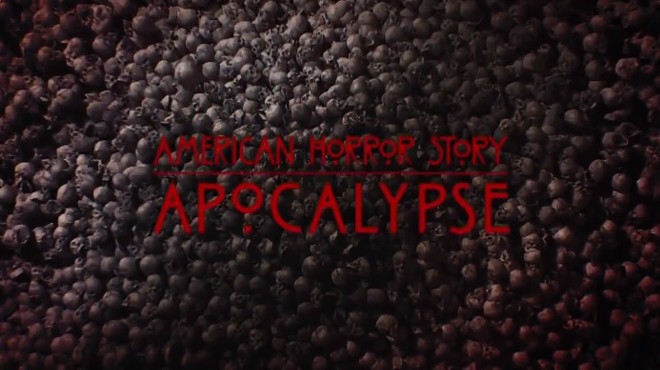Friday, February 17, 2012
Idiot Boksen - 10 Things I Hate About "Downton Abbey"

According to my own wild speculations after looking at Twitter, approximately 90% of Americans have fallen in love with Downton Abbey, a British television series set in the 1910s that airs on PBS this side of the Atlantic. Critics love it, too. The show's first season earned a Metacritic rating of 92, and was named The Most Critically Acclaimed Show on Television by the Guinness Book of World Records.
I caught up on both seasons of Downton in the last few weeks, and I'd first like to say I like the show a great deal. It moves along at a brisk pace, provides insight into how the turn of the century brought about seismic cultural shifts, and the dialogue is sharp. You have to respect a show that feeds its juiciest, funniest lines to 77 year-old Maggie Smith, who delivers each with joyous, impeccable timing.
I am nothing if not a complainer, though, and Downton Abbey has plenty to complain about. In fact, I think bitching about plot holes is one of the reasons I like it so much. Without further ado, I present 10 Things To Hate About Downton Abbey.
(CAUTION: SPOILER ALERTS AFTER THE JUMP.)
10. It's a Freaking Soap Opera. I appreciate melodrama as much as anyone. One of my favorite shows was HBO's Big Love, which was jam-packed with lunacy. But Americans have this tendency to lend all things British an air of legitimacy, whether they deserve it or not. Some people might say Downton is important in the same way that, say, The Wire was important. They may say it's a thoughtful case study of class warfare or some other nonsense. It is not. This show is rife with batshit insane plot twists, especially considering the early 20th century was loaded with cataclysmic events. The only characters who truly suffer are bit players we're never meant to care about in the first place.
9. Saint Bates. Generally, Downton's writers do an admirable job with character depth. There's the villainous footman Thomas, who's deviousness is tempered by society's condemnation of his sexuality and the fact his schemes consistently fail so miserably you start to wish he'd wreak some actual havoc. There's Robert, the Earl of Grantham, who's constantly weighing tradition with inevitable progress. Even Lady Mary has some vaguely likable qualities.
On the other hand, there's Bates, Lord Grantham's infuriatingly noble valet. Bates is the sort of person who won't allow even the simplest of explanations impede his quest for martyrdom. Jesus Christ would envy this man's penchant for suffering. I really hope Bates killed his ex-wife. It would give him some measure of humanity for once.
8. The Definition of Love. Based on Downton Abbey, "love" in the early 20th century would most accurately be translated today as "mild attraction". It was a different time, I suppose, but professions of undying devotion appeared to be only slightly less common than alliances between European nations. (That's a little WWI-based joke for you.) It almost makes me long for the present day, when douchey frat boys are at least honest enough to say, "Hey, you know what? You're an attractive lady, and I would like us to have some sex."
7. The Downton Daughters. Viewers are supposed to sympathize with the fierce independence and refined beauty of Lady Mary, Lord Robert's eldest daughter, which would be much easier to accept if she wasn't a petty shrew, and not all that much to look at. For most of the second season, she's caught in a love triangle between her cousin (!) and a publishing magnate. It's the show's most central storyline, yet the biggest intrigue is in wondering what these two morons see in her.
Lady Edith, the middle daughter, is the show's equivalent to Parks and Recreation's Jerry. She's supposed to be ugly and bland and entirely unwanted, except in the second season, when it turns out she's somewhat useful at remembering the names of wounded soldiers. I mean, she's no Adriana Lima, but sheesh. The rivalry between her and Mary is absurdly vicious, which I'll get to in a moment.
Lady Sybil, the youngest daughter, is non-materialistic, and progressive-minded. She's also hot. Why her only suitor is an Irish chauffeur is one of the show's unfathomable mysteries. And why she elopes with him when she's clearly not even into the guy is another.
6. The Mary/Edith Rivalry. Since we're on the subject of the daughters, most of the first season features moderately catty sniping between the two eldest daughters. It's an entirely plausible sibling rivalry, right up until the point Lady Edith writes a letter to the Turkish ambassador informing him one of his diplomats died while deflowering Mary. And then Mary retaliates by lying and telling Edith's only suitor she's going to reject him right before he's going to propose. Imagine two toddlers quarreling over a Tonka truck. Then imagine them drawing assault rifles and staring each other down in a Mexican standoff. That's pretty much how it went.
5. The Burned Man. A horribly scarred Canadian soldier shows up at Downton and claims he's actually Patrick Gordon, the rightful heir to the estate who's last whereabouts were at the bottom of the ocean alongside the wreckage of the Titanic. The Burned Man claims he was afflicted by amnesia after the disaster and adopted a Canadian accent. Later, a bomb blast during the war causes him to realize his true identity, but not to regain his British accent. He's able to remember all sorts of stuff about Downton, and he has some of the same tics (or epilepsy?) as the original Patrick Gordon. Only Lady Edith believes he's legit, and everyone else thinks he's an imposter. He eventually just leaves. (NOTE: This thread may be picked up again in the Christmas special, which hasn't aired in the US yet.)
I've thought about this from every angle, because apparently I have nothing better to do. Let's say he was an impostor. That means a random Canadian guy of the same height and weight knew Patrick Gordon well enough to imitate his mannerisms and recite personal stories in depth. Then, coincidentally, that same Canadian was burned beyond recognition, to the point where he thought, "Hey, why not just imitate my old buddy Pat and get a massive estate out of it? Lemons to lemonade!" However, in carrying out this intricate plot, Burned Man decides to bypass the whole British accent thing, which seems like a key oversight. Then he leaves because no one believes him! If you went through all this trouble, wouldn't you push it a little more? Get the courts involved or something? I mean, you're disfigured beyond all recognition and social acceptance, Burned Man. May as well go for broke.
Now let's say he was telling the truth, and Patrick Gordon really did survive the sinking of the Titanic and contract amnesia. That just means the writers of television's most acclaimed show employed one of the laziest, hackneyed plot devices in the history of storytelling.
4. Laura Linney? Emily Nussbaum at The New Yorker addressed this better than I ever will.
3. O'Brien's Revenge. At the end of season one, Lady Grantham's maid, the conniving O'Brien (another clear example of why British people should never trust the Irish), purposely leaves a bar of soap on the floor next to Lady Grantham's bath. She does this seeking revenge for what she fears is her imminent firing, which is a total misunderstanding. Lady Grantham slips on the bar of soap, falls, and miscarries her child.
Let's run through the plot holes point-by-point. First, by leaving the soap on the floor, O'Brien is counting on what? Does she want Lady Grantham to die? To be injured? To lose the baby? Because all of these options were entirely possible. In fact, the most likely scenario was Lady Grantham wouldn't slip at all, that she'd simply step somewhere else, and then wonder why O'Brien hadn't picked up the rest of the soap in the first place.
Worse, though, was the moment right before Lady Grantham slips, when O'Brien looks at herself in the mirror one room away and says something to the effect of "This isn't you, O'Brien." It's meant to be a humanizing moment, but to viewers, it was completely in character! All the woman did all season was scheme and scowl, and the writers seemed perfectly content with portraying her as the embodiment of evil. Committing fetal homicide seemed a logical next step in her character arc, and the sudden gust of regret seemed like a cheat to me.
2. The Broken Penis. Matthew Crawley, the heir to the Downton estate, is wounded during the Battle of Amiens. He is paralyzed from the waist down, which is bad because he can't bang his future wife. All sorts of drama ensues, and Matthew is depressed and there's some genuine question of how they're going to resolve this story turn. Then he starts to feel his legs, and suddenly he's walking again. Turns out the doctor just got the diagnosis wrong. Oops!
1. The Spanish Flu Switch-Up. On one night, four characters become ill at nearly the exact same time: Carson the Butler, Lady Cora, Molesley, and Miss Lavinia (Matthew Crawley's fiancee). The outbreak brought some genuine stakes to the plot. Clearly, someone had to die, because you don't just introduce the most devastating epidemic of the 20th century and have it blow over. Would the writers kill off Lady Cora, allowing Lord Robert to get some sweet, sweet strange with the new maid guilt-free? Would they dare retire the lovable, crotchety Carson? Would the flu spread, as flus are wont to do, and the whole series end like Godfather 3? I assumed it would be either Molesley (since he was useless) or Lavinia, since her death would add tension to the "will they/won't they?" scenario playing out between Matthew Crawley and Lady Mary.
Well, Carson ends up being fine, and Molesley was just drunk. No one else catches the bug. A few days later, Lavinia looks completely healthy and Lady Cora is at death's door, all sinus hemorrhages and delirious ramblings. Finally, I thought, a daring twist! Then, as quickly as Matthew Crawley recovered from paraplegia, Lady Cora is fine and Lavinia is dead, either from the flu's sudden relapse (a doctor makes pains to point out this happens all the time with influenza) or a broken heart at discovering her fiancee was still in love with the dubiously attractive Lady Mary. Either way, it was a cheap head fake and an even worse resolution.
It was clear by the end of Season 2 the shark had been jumped. It's not that Downton can't be entertaining anymore. It's a soap opera, and soap operas are entertaining as hell. I'm just saying it's time to embrace the insanity. I'm hoping for spaceships in Season 3.
Tags: Downton Abbey , PBS , Parks and Recreation , Big Love











